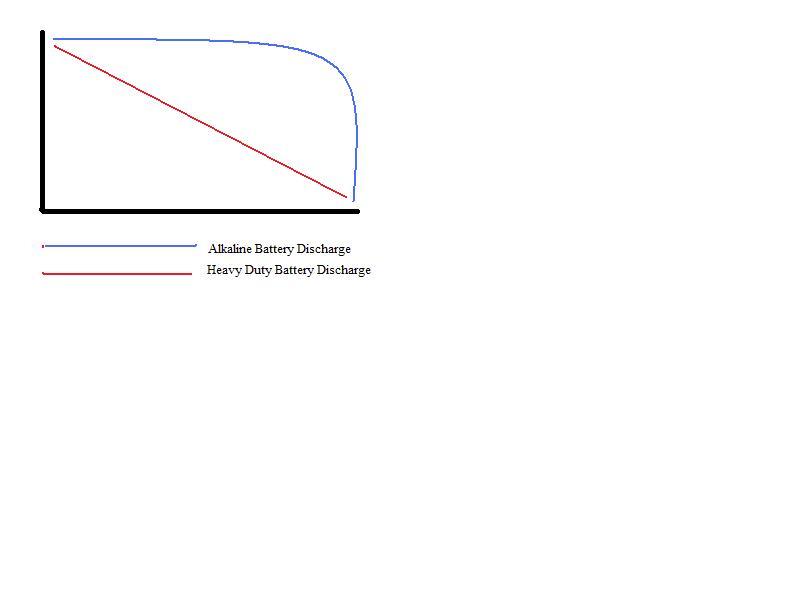When purchasing batteries, consumers usually want to get the best bang for their buck. But some buyers are confused by the many different types of batteries available, including alkaline and heavy-duty. Alkaline batteries, also known as manganese dioxide, are superior to heavy-duty batteries, or zinc chloride, because alkaline have a higher energy capacity, better low-temperature performance and a longer storage life.
- [h2]Energy Capacity[/h2]
Alkaline batteries have a higher energy capacity than heavy-duty batteries. In fact, a standard alkaline battery generally has 500 percent to 700 percent more energy capacity. This means more power and a longer life. Additionally, some popular battery manufacturers have begun to produce premium alkaline batteries, which have an even higher energy capacity.
Both a standard alkaline battery and a premium alkaline battery will offer superior performance at a lower operating temperature than a heavy-duty battery. Standard and premium alkaline batteries perform well in temperatures ranging from -20 degrees F to 130 degrees F. However, heavy-duty batteries do not perform well in subzero temperatures. The optimum operating temperature of a heavy-duty battery is between 0 degrees F and 160 degrees F.
Alkaline batteries have a longer storage life than heavy-duty batteries. While, heavy-duty batteries have a storage life of up to two years, standard alkalines lose only 5 percent of their performance each year. At the end of two years, when a heavy duty reaches the end of its storage life, an alkaline battery has only lost 10 percent of its original performance ability. Premium alkaline batteries can be stored for even longer periods. Like a standard alkaline battery, a premium alkaline battery loses 5 percent of its original performance in the first year. However, in subsequent years, a premium alkaline battery will lose only 2.5 percent performance.
In the 1970s, when alkaline batteries were first introduced to consumers, heavy-duty batteries had a few advantages over alkaline. Heavy-duty batteries were priced lower and were available in a wider range of sizes. However, technological developments have made these advantages disappear. Alkaline batteries are available in the same sizes and for the same price as heavy-duty batteries.
Discharge rates vary between them also. A Heavy Duty battery has a constant discharge rate, whereas an Alkaline battery has a full-empty discharge rate, as such. A heavy duty battery only has half of it's energy left half way through (1.5vdc. degrading to .75vdc) whereas an alkaline continues putting out the same voltage through 90+% of it's life, then dropping off rapidly.




